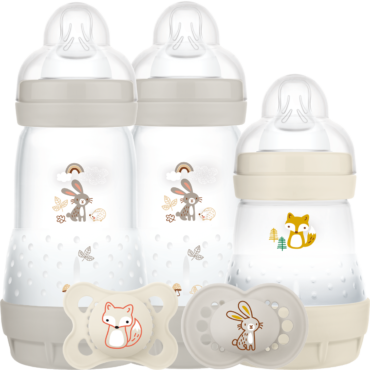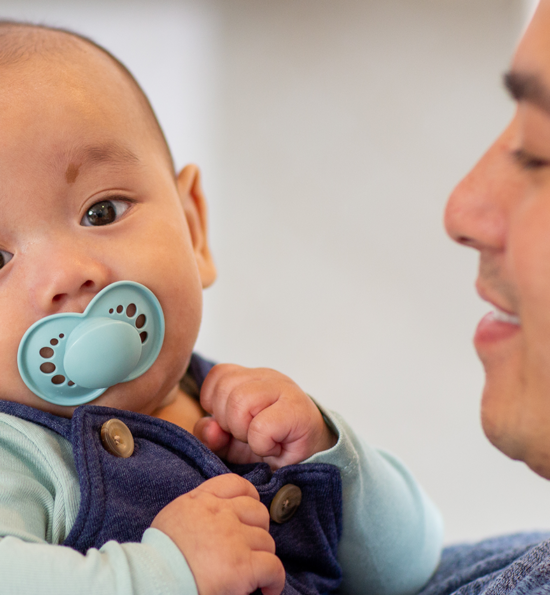Tips which may help ease the strain until colic passes
In addition to frustration and exhaustion, it’s common to experience feelings of inadequacy and guilt as you try in vain to soothe your baby. So while staying calm is easier said than done, these tips below may help ease the strain until colic passes. Just remember it isn’t anyone’s fault and if you are struggling seek the help and support of your Health Visitor or GP.
Tip1:
Observe your baby, watch how your baby responds to certain stimuli and steer clear of any that cause distress.
Tip 2
Create a calm peaceful environment to help your baby to relax, dim the lights and keep noise to a minimum.
Tip 3
Avoid the try everything approach, rocking, bouncing, driving, swinging and singing all together may make things worse, pick one thing that works and stick with it.
Tip 4:
Apply gentle pressure to your baby’s tummy, some colicky babies find relief when pressure is placed on their abdomen and touch alone can be very soothing for them. You could try placing your baby face down on your lap or upright with his tummy against your shoulder, then gently rubbing or patting his back
Tip 5:
Some studies show that reducing wind may reduce discomfort and crying, so speak to your health visitor or GP about using a medication suitable for this. However, research hasn’t yet shown that this treatment definitely helps with colic.
Tip 6:
Try gripe water, which is a natural colic remedy, made of herbs and sodium bicarbonate. Many parents swear by gripe water, but there are no reliable studies, which have shown its effectiveness.
Tip 7:
If you’re breastfeeding, talk to your health visitor about whether you should try temporarily eliminating any foods from your diet that may be causing tummy troubles, such as gas causing cruciferous vegetables (cabbage, cauliflower) or allergenic foods (dairy, soy, wheat, eggs, peanuts, fish).
Tip 8:
For some formula-fed babies swapping a standard formula for one that doesn’t contain cows, milk can make a difference. Research has shown that giving colicky babies hypoallergenic whey-hydrolysed formula helps in some babies. You may be able to get this formula on prescription from your GP
Tip 9:
Swaddle your baby, toss a blanket in the dryer and whilst it’s still warm, wrap it snugly around your baby. The combination of warmth and the feeling of security may help calm your baby’s tears.
Tip 10:
Make lots of white noise, the hum of the vacuum cleaner or tumble dryer can be comforting to babies as it reminds them of being in the uterus. You may even want to invest in a white-noise machine.
Tip 11:
A crying baby might also respond to quiet singing or a lullaby CD; other infants enjoy the sounds of nature. Experiment to find something your baby seems to like.
Tip 12:
Offer a soother, some colicky babies seem to want to eat all the time and that might be because sucking is soothing and not because they’re hungry. So if your baby seems constantly hungry, a soother might help.
Tip 13:
Some colicky babies respond well to movement, so try carrying your baby in a baby carrier or take him out for a walk in the pushchair. Even just rocking or dancing might help.
Tip 14:
The MAM Easy Start Anti Colic Bottle has a vented base, which prevents air bubbles from mixing with breast milk or formula and has proved to reduce colic in 80% of babies who use it. The MAM Teat, which is made of skin soft silicone, is silky soft to feel as familiar to mum as possible and has a 94% baby acceptance rate.
When should I take my baby to the doctor?
It’s always a good idea to talk to your health visitor or GP, about anything that you’re concerned about if only to get some reassurance and maybe a few extra strategies.
Describe the crying, its duration, intensity, pattern and any other symptoms. This will help the doctor rule out any underlying medical condition, which could be triggering the crying.
Coping with Colic
The one reassuring thing about colic is that colicky babies often thrive. They often gain weight as well or better than babies who cry little and are no more likely to have behavioural problems as they grow and develop.
They’re also often more alert as babies and better problem-solvers as toddlers. If you’re at the end of your tether, don’t hesitate in asking for help, whether that be from your partner, relative, friend or health professional.
If you’re on your own, leave your baby in his Moses basket or crib while you take a minute or two in another room. Whilst it’s always best to respond promptly to your baby’s cries, a brief escape might be better for both of you.
Keep in mind, that this time will pass; just when you think you can’t take anymore it will suddenly stop!













